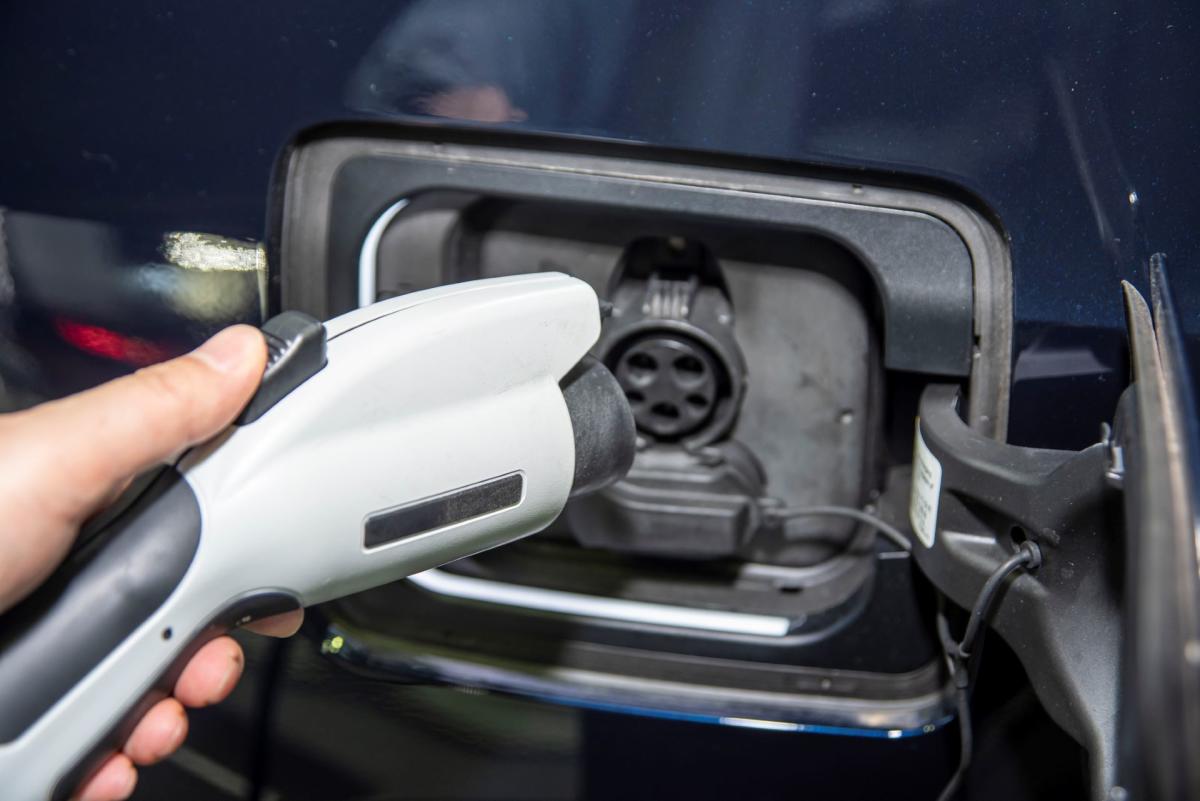EV batteries more reliable than predicted.::The study took real-world data from 15,000 EVs of various makes and models in the U.S.
It’s almost like there is an AstroTurfed campaign to get people to lose confidence in electric vehicles by talking about batteries, even though most first generation Prius batteries are doing just fine.
This is good news. Hopefully the percentage of damaged batteries (whether from improper production, wear and tear, or physical damage ) is low that they can continue to serve long lives. Hope to see more information on that soon.
Trust me folks an EV is on everyone’s mind with gas prices like they are these days. Nobody can really afford either thing, amirite?
I’ve recently started delivering for DoorDash and my mileage has skyrocketed. Im trying to figure out the cutoff where it makes sense to go finance an EV vs keep paying for gas. I don’t think I’m there yet, but I’m spending upwards of $200/month on gas so I’m not terribly far off from a used EV being the same monthly cost.
This is all good news and all, but we need to keep from setting the bar too damn low. I do not consider 100,000 miles to be a huge benchmark. I understand the constraints of a study of EV batteries since most EVs simply haven’t been around long enough to study, but we as consumers should not be accepting EVs to be throw-away items like gadget-makers have turned most consumer electronics.
Yeah 90% charge remaining is still a decent number, but your 200 mile range when new turned into only 180 mile max range in less than a decade. And since you typically are told to only charge to 80%, your real world range is only 144 miles or so. In the winter that will be down to less than 100 miles.
People shouldn’t be falling for misinformation about batteries (like the repeated dismissed myth that they are worse for the environment), but there is also a lot of overly positive info out there that doesn’t reflect reality.
So, and I’m sure I’m not alone in this, my EV (a Polestar 2) charged to 80% gets a theoretical 220’ish miles range (I’m basing this not on the EPA range, but the calculated range in the car based on my driving habits). Now I say theoretical because I’ve never tested it all the way with my largest trip since I’ve owned it being about 70 miles one way. My average “long” driving days are only 50 miles round trip, and an average day where we take the car out is only about 12 miles total in the day. I’ve had a single time where I haven’t charged in my garage at night (on a 110v nonetheless!) and that was the 70 mile road trip where I parked in a garage with a charger so figured I might as well.
Now I bring all this up because I know I’m not alone in this. Sure my driving doesn’t represent everyone but it’s also not singularly unique. Even if this car loses 10% of its range it’s not going to affect my use of it. I know everyone thinks that everyone else does daily long commutes and huge yearly road trips, but that is only a subset of the population (maybe it’s you! I don’t know). But this constant discounting of EVs because they don’t meet some bar for certain groups is disingenuous. They already meet the bar for vast groups of people, and if your daily usage is super high odds are there’s an EV out there that can meet it, even after a drop to 90% years down the road.
Here is the problem with your argument.
In a rather short time, EV’s won’t be a choice. Depending upon the state or country one lives in, a whole ton of places are setting 2030 or 2035 with when the sale of new ICE vehicles will be prohibited. And on top of that, almost all car makers have stated that they will end their ICE production around that time as well. OK, so you admit that not everyone has the same commute. On top of that, not everyone has a garage. Or even a parking space. Some live an hour away from civilization. Those groups individually might be a small percent of vehicle buyers, but together, they represent a fairly significant number of consumers. But if you outright ban the sale of EVs altogether, then what are those people going to do? You are claiming that even with a 10% drop you’ll be OK, but even with your full total range when new, it won’t work with some people’s lifestyles and living situations.
You seem to be trying to lump all problems into a single one-size-fits-all solution. So let’s address things one at a time instead.
If you drive more than my car’s range can handle in a day, don’t buy the same car as me. There are EVs with much higher ranges, or quicker charge times, and many other variables. There’s very likely one that has the range a given person needs (cost we’ll leave as a distinct other issue, but only because by the time ICE vehicles aren’t for sale any more the much higher ranges on EVs will also be much more affordable).
If you live an hour away from civilization, then unless you also have no electricity (in which case, EVs are not for you… but as others have said, just keep the ICE vehicle you have, there’ll be a used market for decades), those folks are going to have an outlet or be able to install an outlet to do charging on. The “hour away from everyone else on the planet” people are not the same people as the “no garage, not even a parking space” people.
If you live in a city (no garage or parking space, that likely means a urban environment), you’re going to have chargers you can swing by once a week to fast charge (city people rarely have the long commutes that rural folk have), heck in my own urban environment we have some cheap ($2/hr) city owned parking lots nearby that have fast chargers for free as part of parking there.
By 2030, you’ll have a robust market of used EVs, and likely a few on that market that are both much more affordable, and can check off the boxes needed for a given individual. Will every EV work for every person? No of course not, but that’s not true of ICE vehicles either.
This is the first positive press piece about EV batteries that I’ve ever seen.
I’ve read a few about the longevity of Tesla’s; especially those used as taxis and work vehicles. Done over 300,000km in a few years, and still doing great.
Forget it. Battery is not reliable. They degrade over time
Anybody has rechargeable AAA batt b4 ???
I do !
I’m no expert, but I don’t think these things run on AAA NiMH batteries.
“The good news is that your EV battery is far more complex and sophisticated than other lithium ion batteries in your life and is built to ensure its lifetime exceeds its warranty - and more.”
Do you not know the difference between nickel -cadmium(NiCad), nickel metal hydroxide (NiMH) and lithium ion (Li-ion) batteries?
Your rechargeable AAA batteries are almost certainly NiMH. Which is not what they use in vapes, phones, CREE flashlights and EVs.
Downvote me to hell
Toyota has made the right decision to go hydrogen tech !!!
That V8 powerred by hydrogen make me moist
Lol at those batt car limited range !!!
Even Tesla misrepresented max range
Gud
Batteries EV car are damagable to environment ! Yea
Go away troll. Your obvious bs is obvious.





